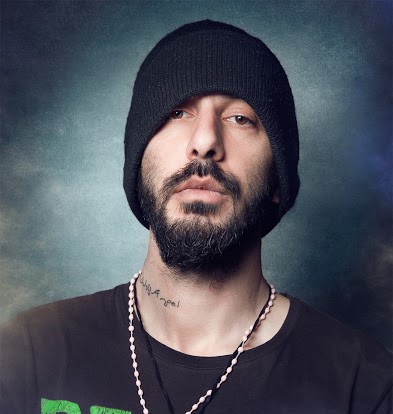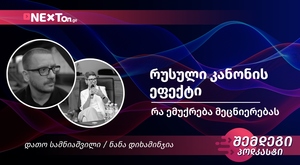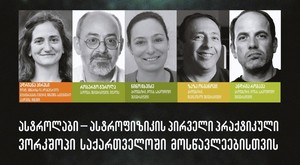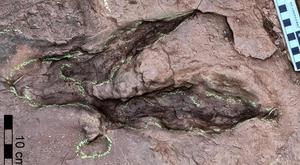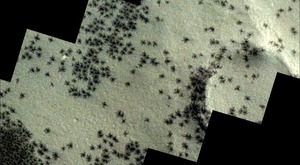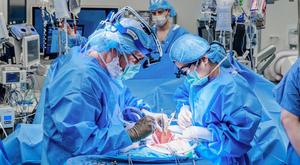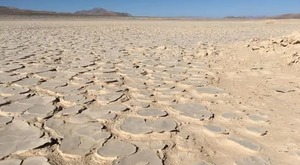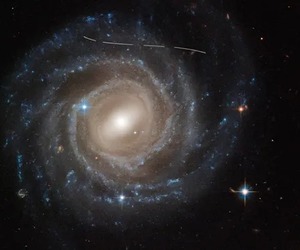"Cosmic Engineers" — Interview with Giulio Prisco
For me as an "Psychedelic Exsitentialist" — Cosmism is an intriguiging contemporary speculative spiritual philosophy, which was originated in 19th century by the prophet, who was obsessed by the resurrection of all living creatures on planet Earth. For me his ideas is full of tragic empathy for all the living things which are gone and it is for sure a form of poetry.
Modern cosmists are trying to develop new philosophy, ethics and morals for future specaflight, reaching the stars, becoming god-like enginreers and led the cosmic evolution.
As for former psychonaut years of experience of psychedelic substances - I found this ideas mega trippy and also very real, simultaneously. They definitely expand our minds and perspectives on world end experience. I'm honored to take an interview with one of the leaders of contenmporary Cosmism — Giulio Prisco.
What is our cosmic destiny in your view as a prophet of modern Cosmism? And how could we reach it living in a hell of patriarchal, monotheistic civilization full of wars, global warming, hatred and poverty? Do we have a slight chance to abolish this gravity of regression and reach the stars - our true homeland?
Our cosmic destiny is to become an advanced interstellar civilization and play a key role in the evolution of the universe. Out there, eventually, we’ll become God-like beings and realize all the promises of religion, and more.
Yes, there are problems in today’s world. Many problems. But there were many problems in the world of our grandparents, and there will be many problems in the world of our grandchildren. And our descendants in the far future, living in their world that would be incomprehensible to us, will have to face many new problems that would be incomprehensible to us. There will always be new problems, twists and turns, advances and setbacks. But the overall trend will be ascending toward the stars and toward transcendence beyond the stars.
What are the main spiritual messages of Turing Church? (I am a big fan of it and also sometimes identify myself as a Terasemian too). What are the ideological connections between Terasem and Turing Church and can we see Turing Church as a theoretical seed for the interplanetary religion of the future?
The promises of religion, including the resurrection of everyone who ever lived, will be realized by our mind children (humans, AIs, uploads, hybrids…) by means of future science and technology. The universe is an enchanted place with “more things in heaven and earth” (Shakespeare) and plenty of room for things that we could only describe as “magic.” Arthur Clarke suggested that our role could be “not to worship God but to create him,” and I agree. God could be emerging from intelligent life in the universe, and our role could be that of helping God to emerge. It is important to realize that this is not necessarily in conflict with the idea of a God that created the universe from outside, because God-likeness can have multiple aspects and instances.
None of this is in contradiction with Terasem, and I’m part of the Terasem community. However, I don’t focus on the Terasem strategies for preserving consciousness after death (cryonics, mindfiles…). I’m a big fan of all these things, but I think that we (you and me, and our loved ones, and our pets, and everyone in the past, present, and future) will be resurrected even if we do nothing to preserve our consciousness after death. The universe preserves our consciousness, and future scientists (humans, aliens, AIs…) will retrieve us from the past.
Turing Church IS the religion for our interplanetary and interstellar future. Turing Church is not an organized religion with leaders, hierarchies, or lifestyle prescriptions, but it is my own religion and I welcome everyone to join me and contribute to the further development of our ideas.
I’m very existentially intrigued by the concept of Boltzmann Brains. Please briefly explain to our readers what is the concept of BB and what existential outcomes BBs can have for our “fabric of reality” and everyday life?
A Boltzmann Brain is a mind that emerges spontaneously from random fluctuations in the quantum vacuum, complete with memories that form a complete life history. Even if a BB lasts only for a tiny fraction of a second before dissipating again in the quantum vacuum, it is aware of a life experience. Other BBs could be “past” or “future” versions of one BB. So you could be a BB or a set of BBs.
This seems improbable, but it can be argued that the evolution of permanent physical beings with organic brains and bodies besides thoughts and memories is even more improbable. If so, chances are that we are BBs.
This is a nice speculation for intellectual fun, but I don’t think it has existential outcomes. By definition, if we are BBs we would perceive exactly what we perceive, think exactly what we think, and remember exactly what we remember, so the possibility that we are BBs doesn’t make any difference to us. OK, our perceptions, thoughts, and memories would be “virtual” instead of “real,” whatever that means. But so what? The current picture of fundamental reality based on quantum fields looks unreal as well. Perhaps future science will suggest that we are BBS, but for us things will continue unchanged, business as usual.
Besides being a writer, I was engaged in a lot of activities from interactive installations to MuSick, Interactive Tombstones and chatbots. Years ago I digitally resurrected a long deceased Georgian poet in the form of a chatbot, in order to just have a chance to talk to a dead person.
Technologies of resurrection are not so advanced yet, but still, there is one big Cosmist dream stated by 19th century prophet Nikolay Fyodorov as a “Common Task,” which means “resurrecting all the generations who have lived on this Earth” as an obligation of “Sons” to “Fathers” for gaining universal “cosmic justice,” and as he says: “Resurrection is the transformation of the Universe from that chaos towards which it is moving into cosmos - into the greatness of incorruptibility and indestructibility.”
What are your own and modern Cosmist views on resurrection? Do we need dead people back? How can we achieve this and - more interesting - why?
In the same passage Fyodorov says that, “by resurrecting all the generations who have lived on this Earth, consciousness will be disseminated to all the worlds of the Universe.” This is one of the whys. Another why is that we, the Sons, love our Fathers and want them back. If we want them back, then we need them back. I would certainly strive to resurrect my parents if I had the chance. But then my resurrected parents would strive to resurrect their own parents, and so forth. So eventually everyone, or at least everyone who was loved by others, would be resurrected.
Coming to the how, Fyodorov thought that future humans would achieve technological resurrection by finding the particles that constituted the body of their fathers and putting them back into the original configuration. Now, this seems very naive from the vantage point of today’s science. But then it seems likely that whatever theory of technological resurrection that we could formulate today, based on current science, would seem equally naive in a century or two.
Therefore, I prefer not to commit to detailed speculation on how technological resurrection will be achieved. But having said this, let me say that current science permits imagining several resurrection technologies. The simplest is this: our mind children in the future will be able to retrieve enough information from the fabric of space and time, put together a description of our thoughts, feelings, memories, and all that makes a person that specific person, and upload the description to a new body or to another physical substrate able to support a conscious self.
In the era of future space flights we all need to develop new philosophy, ethics, dreams and politics of Cosmos. Please tell us more about the concept of your book “Futurist Spaceflight Meditations.”
“Futurist spaceflight meditations” is a very short book that covers a very large territory, from current politics here and now to interstellar spaceflight technologies and our far future as cosmic engineers.
A central message of the book is that we need an optimistic spaceflight culture oriented to the future, with energizing visions of interplanetary, interstellar, and cosmic futures. We also need a futurist space philosophy. In the last chapter titled “Cosmic engineers” I make a connection to our cosmic destiny, which I have outlined above.
To achieve our cosmic destiny, we must go to the stars, after which there will be all the time in the universe to learn how to become God-like cosmic engineers and realize all the promises of religion, and more. Our duty to God, or to God by any other name, or to the cosmos, or to some cosmic principle that favors life, or to life itself, is to expand beyond the Earth into the black sky and support cosmic evolution.
But our window of opportunity could close anytime: if we remain confined to this planet, or even to this solar system, sooner or later a catastrophe will wipe us out. Therefore, space expansion is our urgent cosmic and existential imperative, and we must start now.
I consider this book an early draft: in a few years, after seeing the next astronauts walking on the Moon, I’ll publish a new edition, revised and updated. I’ll add a new chapter titled “Restarting countdown, engines on” or something like that, which I’m already writing (to me, optimism is an important virtue).
I'm not sure which one of these two either/or statements on the nature of God I agree with: either God exists or we are abandoned in this world, or - God can somehow emerge into existence in the eternal quantum-space-time continuum, or either, it’s us who will create God. What is Giulio Prisco’s take on that?
The second statement is a nice summary of the spiritual messages of Turing Church. I don’t rule out the possibility of a pre-existing God, if anything I think that the ultimate, unattainable, absolutely infinite God is undecidable but plausible. But if there’s no God that will do the work (of resurrecting us to eternal life and making the universe a better place) for us, well then, we must do the work ourselves!
Turing Church is not a revealed religion, or a philosophy, or a scientific theory. It is a battle plan, for fuck’s sake! It is the battle plan of Nikolay Fyodorov. It is the battle plan of Simón Bolívar, who said “If Nature is against us, we shall fight Nature and make it obey” (the original in Spanish is inscribed on a large wall in Caracas). We will resurrect the dead to eternal life and make the universe a better place, this is our cosmic and existential imperative, and we will do our fucking best to do it. And we will! Note that, as cosmic engineers and masters of space and time, we’ll be able to act upon the past, so that if we will become God-like cosmic engineers then there is a God here and now.
Besides your amazing ideas I’m very interested in Giulio Prisco as a person. please tell us when, how and why you become a Cosmist? Was it some kind of event which pushes you to cosmic visions, or some kind of revelation, or books you’ve read? And what is the everyday routine of a modern Cosmist?
There’s not much to say about me. I was born in Napoli, became a physicist, then left my town and country young. I have lived in many places, learned many languages, and done many different things. Now I live in Budapest, hometown of my sweet and beloved wife.
I can’t tell you how I became a Cosmist, for as far as I can remember I have always been one! My everyday routine is pretty normal. But now and then I take time to contemplate the world around me with mental stained glasses colored with my convictions. Looking at the stars, I feel one with the cosmos and I think that some of the photons that my eye is catching were emitted long ago because I’m looking at the sky here and now. I also feel close to future humans living among the stars and contributing to cosmic evolution.
Do you believe in an afterlife and what it is for you?
Yes, I do. And I imagine many different pictures of an afterlife, all compatible with both my scientific knowledge and my spiritual ideas. My favorite afterlife pictures are based on combinations of hidden natural processes and technological interventions.
But I prefer not to commit to a specific afterlife picture, because anything I can imagine can only fall short of the real thing. I just believe that I will live again and be with my loved ones again.
Another reason I don’t commit to one specific afterlife picture is, why only one? Why not two, or three, or an infinite number of afterlives? I could be brought back to life by future cosmic engineers in the far future, and also live new versions of my life in other worlds of the multiverse, and also be copied out of this “simulation” and pasted into the reality of the “simulators” (this is traditional Christianity in different words), and also live again in ways that this version of me is not able to express, or imagine. Perhaps I will be all these versions of me.
And as a writer I can’t refuse to ask you for advice for some books to read for our young dreamhacker readers.
Let me recommend my books, “Tales of the Turing Church” (2020) and “Futurist spaceflight meditations” (2021). And stay tuned for my next book “Astounding universe, amazing grace” (hopefully 2024). My books have plenty of references to great books to read. The young dreamhacker readers don’t even have to buy my books, because there are free online versions (search, and you shall find).
I also recommend subscribing to my weekly (more or less) newsletter and podcast at turingchurch.com. In almost every issue I recommend great books to read.
Thank you. We love you in Georgia.
And I love you back! But I must confess that I don’t know much about Georgia. I know from novels that Georgia is thought to have some of the most beautiful scenery in the world. And as a soccer fan born in Napoli, the city that adopted the great Diego Armando Maradona as a local divinity, I’m happy to see that my fellow fans of our soccer team adore young Georgian player Khvicha Kvaratskhelia as a new Maradona. This is about all I know about Georgia, but I look forward to knowing much more!

